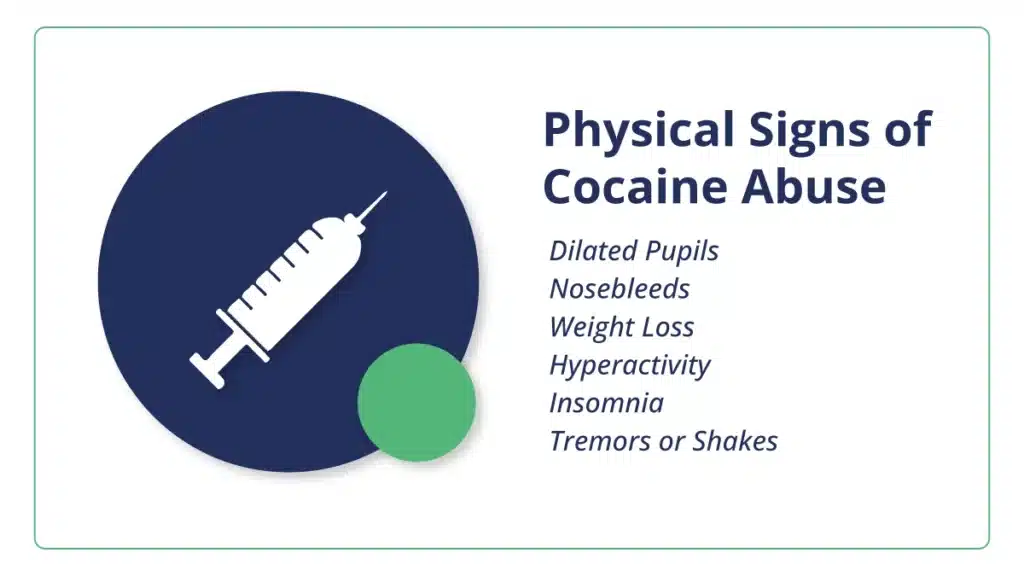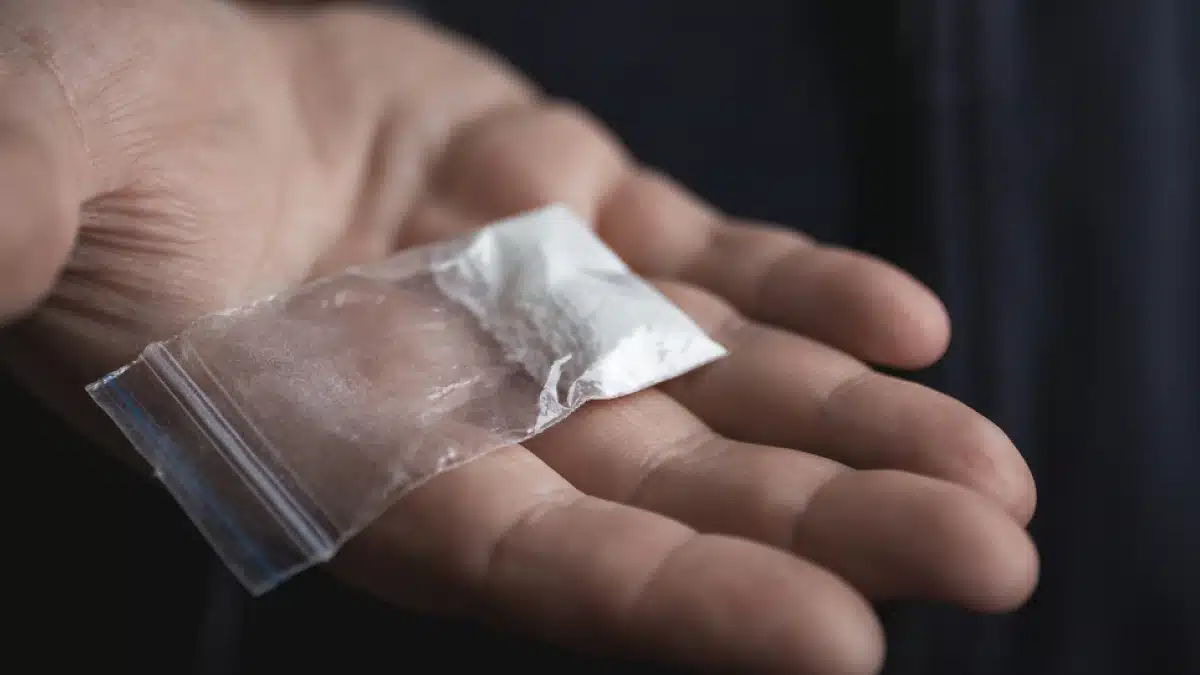Cocaine abuse poses significant risks to individuals and communities, manifesting in various signs that demand attention.
From erratic behavior and increased energy to financial troubles and physical health deterioration, the manifestations of cocaine abuse are varied.
Understanding these signs is paramount in fostering awareness, initiating conversations, and ultimately facilitating the path toward recovery for those grappling with this challenging substance abuse issue.
Key Takeaways
The use of Cocaine among teenagers in the United States is a serious concern, as it poses significant health and social risks. Here’s what you need to know:
- Cocaine is a powerful stimulant drug that can lead to intense euphoria, increased energy, and heightened alertness.
- Signs of cocaine abuse may include dilated pupils, erratic behavior, financial problems, and frequent mood swings.
- If you suspect someone is abusing Cocaine, encourage open communication to seek professional help for addiction treatment.
Contact us at (845) 479-6888 for more information and personalized drug recovery assistance for your child’s healthier and happier tomorrow.

Cocaine: An Overview
Cocaine is a powerful stimulant drug derived from coca plants, primarily found in South America. It typically appears as a white, crystalline powder or as a solid, rock-like substance known as crack cocaine.
Renowned for its stimulating effects, Cocaine interferes with neurotransmitter levels in the brain, particularly dopamine, inducing feelings of euphoria and increased energy.
Why Cocaine is addictive
The addictive nature of Cocaine stems from its ability to disrupt the brain’s reward system. By blocking dopamine reuptake, Cocaine intensifies the pleasurable sensations, creating a cycle of increased use to maintain the desired effects.
Prolonged use leads to tolerance, dependency, and altered function of the brain. The compulsive seeking of the drug, despite negative consequences, characterizes cocaine addiction, posing significant health risks and social implications for people grappling with its allure.
Signs of Abuse
Cocaine abuse can have various physical, psychological, and behavioral signs.
Here are common signs associated with abuse of Cocaine:
Physical Signs
Dilated Pupils: Cocaine use often results in enlarged pupils.
Nosebleeds: Frequent use can lead to irritation and damage to the nasal passages, causing nosebleeds.
Weight Loss: Cocaine is an appetite suppressant, and teens may experience rapid weight loss.
Hyperactivity: Increased energy levels, restlessness, and hyperactivity are common negative effects of cocaine use.
Insomnia: Cocaine can disrupt sleep patterns, leading to difficulty falling asleep or staying asleep.
Tremors or Shakes: Teens may exhibit involuntary muscle movements or tremors.
Sweating: Cocaine use can cause excessive sweating.
Psychological Signs
Euphoria: Cocaine use often produces a short-term feeling of intense pleasure and euphoric effect.
Anxiety or Paranoia: People may experience heightened anxiety, paranoia, or even panic attacks.
Mood Swings: Cocaine use can lead to rapid and unpredictable mood swings.
Impulsivity: Increased risk-taking behavior and impulsivity are common psychological effects.
Agitation: Teens may become easily agitated, irritable, or aggressive.
Difficulty Concentrating: Cocaine use can impair concentration and cognitive function.
Behavioral Signs
Sniffing or Runny Nose: A persistent runny or stuffy nose may indicate cocaine use, especially if there are no other apparent reasons for it.
Financial Issues: Cocaine abuse can be expensive, leading to financial problems and a focus on obtaining the drug.
Social Isolation: Young people may withdraw from family members and friends and behave secretively.
Neglect of Responsibilities: Prioritizing drug use over work, school, or other responsibilities is a common behavioral sign.
Changes in Social Circle: A shift in social groups or spending time with known drug users.
Legal Problems: Cocaine use can lead to legal issues, including arrests for possession or related offenses.
Drug Paraphernalia: Discovering items like pipes, mirrors, straws, or small plastic bags can be indicative of cocaine use.
Risks and Consequences of Cocaine Abuse on Teens
Cocaine abuse poses significant risks and consequences across various dimensions, impacting physical, mental health, and social and economic aspects of an individual’s life.
Cocaine use disorder inflicts severe damage on the body, escalating heart rate and blood pressure and creating a greater risk of cardiovascular events. It leads to heightened vulnerability to strokes, heart attacks, respiratory issues, and even sudden death.
In addition, persistent use of powder cocaine can cause long-term damage to vital organs and the mind and compromise overall physical well-being.
Chronic cocaine use triggers mental health complications, such as anxiety, paranoia, and hallucinations. Prolonged use fosters addiction, leading to cognitive impairments, destroyed brain cells, memory loss, and mood disorders.
The drug’s impact on the brain’s reward system exacerbates mental health challenges, often requiring comprehensive intervention and proper recovery treatment.
Cocaine Overdose
An overdose occurs when an individual ingests or is exposed to a substance, such as drugs or medications, in quantities that exceed the body’s ability to handle. Overdoses can have severe and potentially life-threatening consequences.
Let’s have a look at Key points about cocaine overdose:
Causes
- Potency and Purity: The unpredictability of illicit Cocaine on the market.
- Seeking Intensified High: Teens and men inadvertently consuming excessive amounts.
- Polydrug Use: Combining Cocaine with other substances amplifies overdose risk.
Symptoms
- Agitation and Anxiety: Heightened psychological distress.
- Elevated Heart Rate: Accelerated cardiovascular activity.
- Hyperthermia: Dangerously increased body temperature.
- Seizures: Uncontrolled neurological activity.
- Respiratory Distress: Labored or compromised breathing.
- Chest Pain: Indicators of cardiovascular strain.
Emergency Treatment
Emergency treatment for cocaine overdose involves addressing immediate life-threatening physical symptoms. The primary focus is stabilizing vital signs like heart rate and blood pressure. Intravenous benzodiazepines, like lorazepam or diazepam, are administered to control seizures and agitation.
Additionally, researchers claim that supportive measures, including oxygen therapy and monitoring for complications like hyperthermia, are crucial. In severe cases where traditional interventions prove insufficient, specialized treatments like intravenous lipid emulsion therapy may be considered.
Rapid intervention and medical supervision are essential, emphasizing the importance of seeking immediate medical attention when a cocaine overdose is suspected.
Treating Cocaine Abuse
Cocaine addiction is a complex issue that often requires a comprehensive approach involving medical, psychological, and social interventions.
Here are some common components of successful treatment for symptoms of cocaine addiction:
Cocaine overdose necessitates immediate detoxification at a treatment facility to eliminate the illegal drug from the body. In a medical setting, supervised detox helps manage cocaine withdrawal symptoms, ensuring a safer process.
This phase involves medical professionals monitoring vital signs and administering medications to alleviate discomfort.
Pharmacological intervention is crucial in treating cocaine overdose or drug addiction. Benzodiazepines, such as diazepam, may be used to manage anxiety and seizures associated with overdose. Beta-blockers can address cardiovascular symptoms, while antipsychotic medications help control agitation.
Medications are tailored to individual needs, and their administration is closely monitored.
Post-detox therapy plays a pivotal role in addressing the underlying causes of substance use disorder. Cognitive-behavioral therapy (CBT) is effective in reshaping thought patterns and behaviors related to substance abuse problems.
Motivational enhancement therapy (MET) fosters intrinsic motivation to change. Group therapy provides a supportive environment where individuals share experiences and coping strategies.
Family therapy can involve loved ones in the drug abuse recovery process, fostering a holistic approach to overcoming mental disorders and addiction.
Frequently Asked Questions (FAQ)
How does cocaine abuse affect a person’s mental health?
Cocaine abuse can lead to severe mental health issues, including anxiety, paranoia, allergic reactions, hallucinations, and an increased risk of mood disorders.
Chronic use can result in, for example, cognitive deficits, impaired decision-making, and heightened susceptibility to psychiatric conditions, exacerbating overall mental illness.
How do I know someone’s been using Cocaine?
Signs of frequent use of Cocaine include dilated pupils, increased energy, talkativeness, hyperactivity, frequent sniffing, nosebleeds, and erratic behavior. Look for white powder residue, rolled-up bills, or small mirrors.
Detecting these signs suggests possible cocaine use, but professional treatment from experts is necessary for confirmation of the addictive stimulant.
What are the withdrawal symptoms from Cocaine?
According to research, cocaine withdrawal symptoms may include fatigue, increased appetite, vivid dreams, slowed thinking, and depression. Cravings, irritability, and mood swings are common.
Withdrawal can vary in intensity, but seeking medical advice is crucial for a safe and effective recovery process.
Choose an Addiction-Free Tomorrow for Your Teen
Reclaim your teen’s future from the grip of cocaine dependence with our specialized teen addiction treatment center.
We aim to empower teenagers to overcome the grip of Cocaine through a comprehensive residential treatment approach. Our strategy combines therapy, music, art, recreational activities, educational workshops, and personalized counseling to foster lasting recovery in a supportive environment.
Let your teen reclaim control, rediscover joy, and thrive. Contact us at (845) 479-6888 today.



Higher doses of Cocaine use strain relationships, isolating young adults from their support networks. It fuels erratic and violent behavior, jeopardizing friendships and family ties. Social stigmatization further compounds the isolation.
The economic toll is multifaceted, encompassing healthcare costs, lost productivity, and legal repercussions. Cocaine-related workplace absenteeism and crime place a burden on both individuals and society, perpetuating a cycle of economic decline.